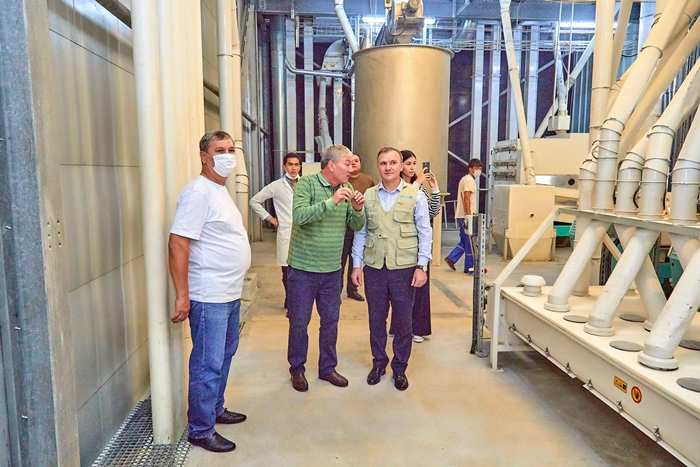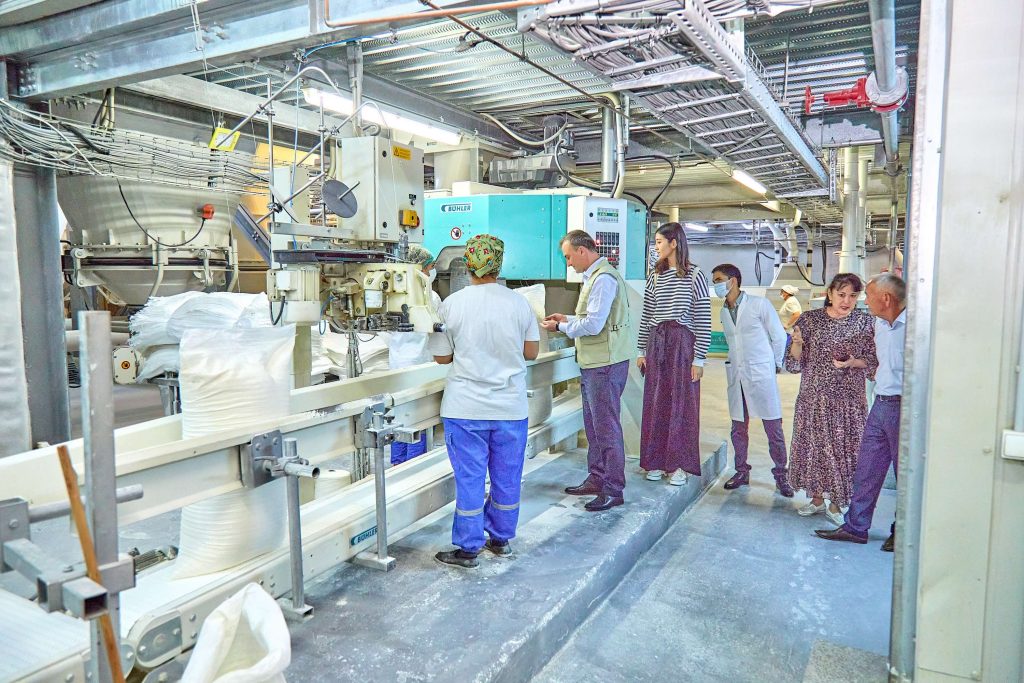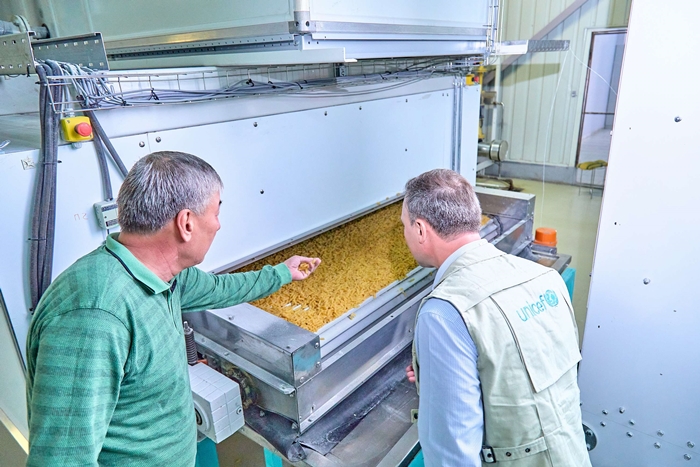In August this year the Government of Turkmenistan with UNICEF support received the second batch of premix for flour fortification. UNICEF has been supporting the Government with the procurement of premix, which consists of micronutrition elements added to the flour, since 1996, when the President of Turkmenistan issued a decree on “Salt Iodization and Flour Fortification with Iron”. Turkmenistan was one of the first countries in the region to start a flour fortification programme and continues to be recognized as one of the lead countries in Central Asia in this area.
 In 2006, following UNICEF advise, folic acid was added to the formula, and since then, all wheat flour produced in Turkmenistan is fortified with folic acid and iron ensuring the optimal intake of these necessary micronutrition elements by the population. With the introduction of new fortification standards, in 2006-2007, UNICEF provided additional dosing machines and ensured that millers are aware about the new standards and ready to implement them in the mills throughout the country. All mills producing premium and first grade wheat flour have the capacity to fortify the flour in the country.
In 2006, following UNICEF advise, folic acid was added to the formula, and since then, all wheat flour produced in Turkmenistan is fortified with folic acid and iron ensuring the optimal intake of these necessary micronutrition elements by the population. With the introduction of new fortification standards, in 2006-2007, UNICEF provided additional dosing machines and ensured that millers are aware about the new standards and ready to implement them in the mills throughout the country. All mills producing premium and first grade wheat flour have the capacity to fortify the flour in the country.
From 2008 the programme is fully self-financed by the Government of Turkmenistan and UNICEF supports the Ministry of Agriculture and Environment Protection with the procurement of premix. This support is provided every year and continues to date in the framework of a Memorandum of Understanding (MoU) on Procurement Services signed by UNICEF and the Government on 21 January 2008 and re-signed on 16 May 2016. Under this MoU, about 120 tons of premix are procured every year.
Fortification of wheat flour with vitamins and minerals is a proven, safe, and cost-effective strategy to address micronutrient deficiencies, such as anaemia, and to improve nutrition-associated health outcomes. Globally, the staple food fortification has also shown to have a significant positive impact on the economy of a nation through improved health status and productivity of the population.
“Addressing micronutrient malnutrition, such as iron and folic acid deficiencies, is important for maintaining and improving the health of the population, particularly women and children. Nutrition programmes also contribute to the achievement of Sustainable Development Goals (SDGs). The flour fortification programme in Turkmenistan is an example of successful collaboration of UNICEF and the Government of Turkmenistan over the years, and UNICEF stands ready to continue its support,” says Alexandru Nartea, UNICEF Deputy Representative in Turkmenistan.
In the meantime, the third and last batch of premix for 2022 is enroute and expected to arrive in Turkmenistan by the end of the year. ///UNICEF Turkmenistan, 7 Oct

